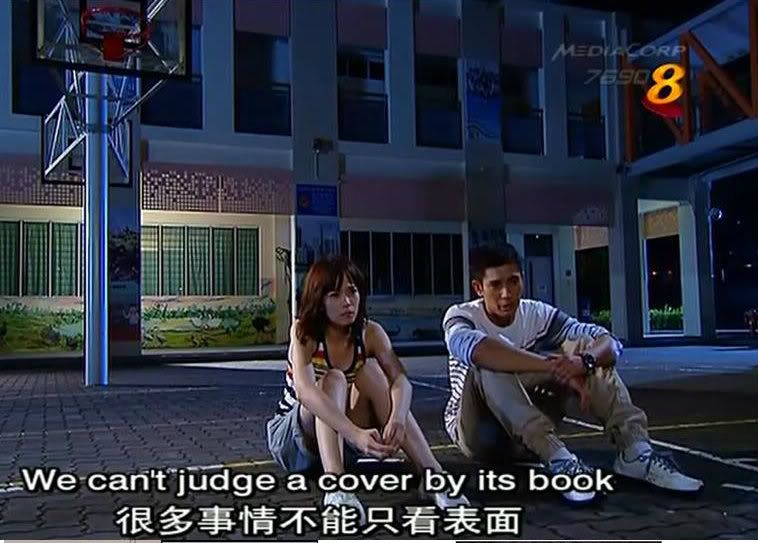- Joined
- Jun 21, 2012
- Messages
- 2,799
- Points
- 0




SINGAPORE - Growing up, cardiologist Carolyn Lam was dissuaded by both parents from doing what they did.
Her mum did not want her to be a paediatrician. Says Dr Catherine Lam, 66: "You are on call seven days a week - 2am, 4am, any time a child is sick. I thought she could do something like dermatology. Just look at skin, don't have to be called at night."
Her dad, Professor Tom Lam Toong Jin, 72, who has won awards for research in aquaculture and has consulted for agencies such as the Food and Agriculture Organisation of the United Nations, wanted her to go into clinical medicine, not science.
It takes patience and dogged research before any claims to a discovery can be made. Until then, "you're always worrying about the next problem, grants and being published in top journals", says the Emeritus Professor of biological science at the National University of Singapore (NUS).
"So that's what I tell my mentees - be prepared for really hard work," his younger daughter, now 38, says during the interview at their bungalow in Bukit Timah.
She has an older sister, Constance, 41, who is a housewife with two children.
"After my A levels, I knew I wanted to be a doctor. I just didn't know what kind," recalls Associate Professor Lam. After she got her NUS medical degree, she spent seven years from 2003 in the United States, training in Boston and at the Mayo Clinic in Minnesota. She returned home in 2010.
As it turns out, she married her parents' careers as a clinician-scientist. At the National University Heart Centre, she is a consultant for the cardiac department and director for the Women's Heart Health Clinic.
Last month, she received the L'Oreal Singapore for Women in Science National Fellowship 2012. Among other things, it recognises her for setting up the first heart- health clinic for women here last year.
She was also among 20 physicians worldwide to earn the Young Physician Leaders title during the World Health Summit in Berlin in October. She is now managing the National University Health System's five-year, 10-country study in heart failure, with a $5.6-million grant from a medical device company.
Who first inspired you to be a doctor?
Carolyn: It was watching mum save the lives of scores of babies and children. I remember playing at her feet in the clinic and following her on ward rounds.
Catherine: In the 1980s and 1990s, I ran a clinic each at Mount Elizabeth and Gleneagles medical centres. I kept a room for my daughters at Mount Elizabeth and had a driver who brought them there practically every day from Nanyang Primary School. I did homework with them and kept some toys for them to play with.
What expectations did you feel your parents had of you?
Carolyn: I was sensitive to what people wanted of me, and how to please them. In my teens and 20s, it was hard to distinguish my voice from theirs. The years in the US, when I was left on my own to make my own decisions, that was one of the healthiest growing times for me.
Did you feel you were in their shadow?
Carolyn: In paediatric circles, I was Catherine's daughter and in the early days in NUS, I was Tom's daughter.
Toong Jin: You still are, what.
Catherine: To be fair, I told her not to choose Raffles Girls' School where I was head prefect.
Carolyn: Goodness knows why I chose the school. I used to be called Catherine's daughter in the school all the time. And I was just a prefect.
Catherine: Maybe she was too much in my shadow.
Carolyn: Maybe a lot of what I did was trying to live up to their expectations. But humbly, I think that my achievements now are coming from me.
What was she like as a child?
Catherine: She was a lovable, sensitive child. Her father was away many times a year, sometimes three months at a stretch.
Toong Jin: It was for my consulting and research work.
Catherine: Don't forget, there were no mobile phones in the 1980s.
Carolyn: I was a worrywart. I remember thinking, "Will my daddy come home?" "Is mummy okay?"
Catherine: She was about six, and would come and hug me and comfort me though she was the one who missed him a lot.
What other interests do you have?
Catherine: I believe in an all-rounded approach. So she had swimming, tennis, piano and acting lessons.
Carolyn: I'm the typical Singapore product.
Toong Jin: If it were up to me, they wouldn't have learnt anything.
Catherine: She's also a ballroom dancer.
Carolyn: There's nothing like enjoying the music, moving to the rhythm, and those ballroom gowns are so lovely. If I hadn't become a doctor, I think I might have become a ballroom dancer.Toong Jin: My wife is a doer. During her Sec 4 prize-giving day, Carolyn was at a swimming competition. The teachers were about to call her name but she wasn't in school.
Catherine: I rushed from work and made it to the ceremony just in time. I knew the teachers, so I asked them to call out her name for her prizes at the end.
Carolyn: Dad was just sitting and fidgeting, waiting for me to arrive. Thank God, I got a bit of that "doer" side from mum. If left to my dad and me, we would just be sitting around talking about things.
If parent-child roles were reversed, what would you do differently?
Catherine: I would want to do well but not aim too high because I would want to spend time with family and friends.
Toong Jin: I would put a limit to my commitments and have a balanced life.
Carolyn: I would dance and enjoy life more, and take my daughter along for the fun.
[email protected]




